Fresh and full of texture, Vietnam’s spring rolls are known and loved worldwide. However, the country has a more passionate love affair with hand-rolled bites than you might expect. From the ultra-fresh to the deep fried, món cuốn dishes are culinary staples across the country. Get to know the many varieties and flavours of món cuốn a little better with this list of 10 beautiful bites to try in Vietnam.
Bánh khọt
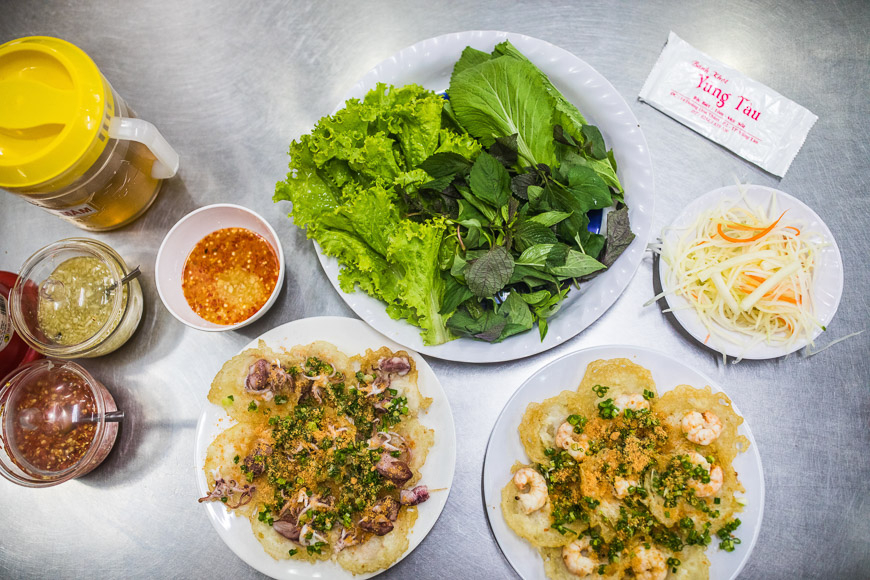
Bánh khọt is deep-fried dreaminess. Originally from Vũng Tàu, the batter for bánh khọt is a mixture of rice flour, turmeric and coconut milk. The batter is poured into heated molds and topped with a plump shrimp or other fresh seafood, then fried to perfection. Wrap it up in some lettuce with herbs and dip in fish sauce.
Bánh căn
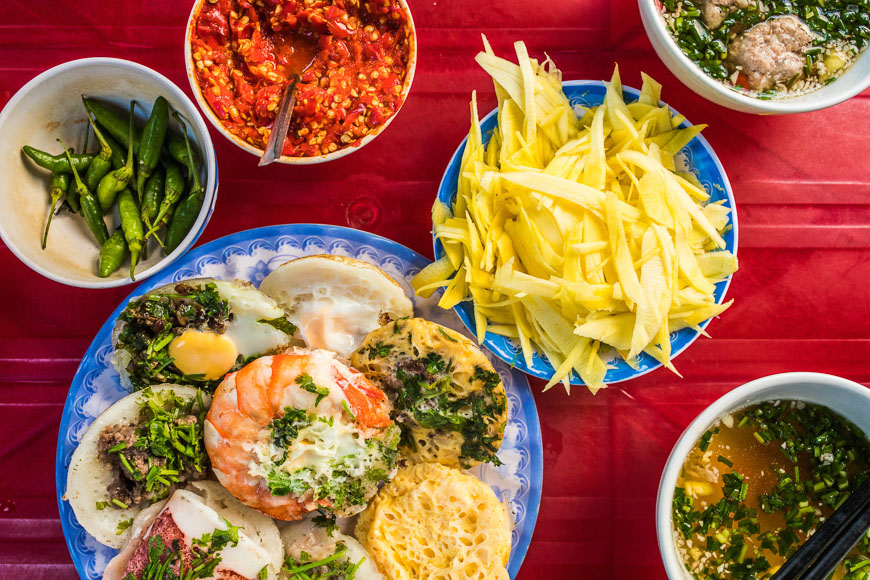
While bearing similarities to bánh khọt, bánh căn is actually steamed, not fried. The batter contains egg, which creates a lighter texture similar to a fluffy omelette. Served with a variety of toppings, such as quail egg and prawn, Nha Trang is the only place where you can find bánh căn served on the street. Roll each bite in fresh lettuce, dip in green onion sauce, add a slice of sour mango, and devour.
Nem lụi
A delicacy from Central Vietnam, nem lụi can be found all over the country at high-end restaurants and sidewalk stalls. Minced pork is carefully seasoned and grilled on lemongrass stalks, giving the meat a citrusy aroma. Remove the meat from the skewer, and eat it wrapped in rice paper with green mango, mint and a nutty dipping sauce.
Chạo tôm
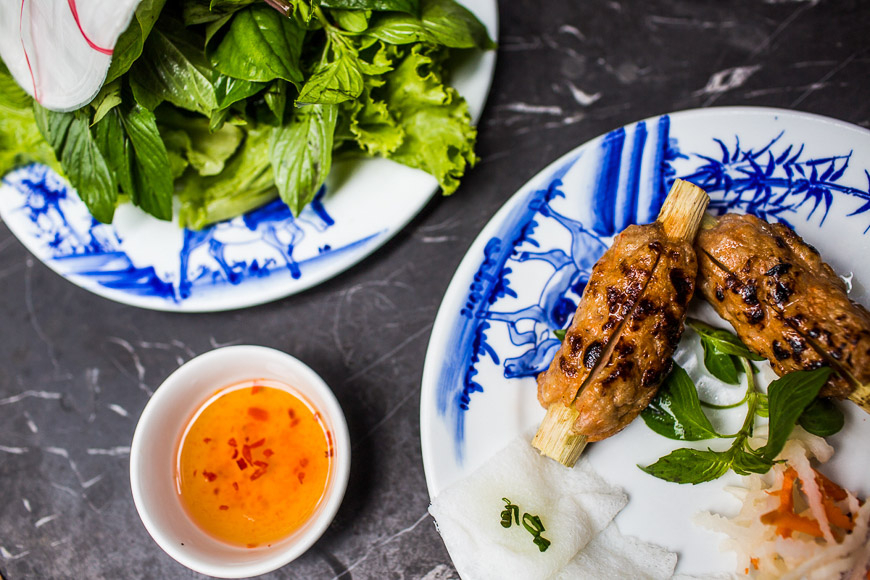
A close cousin of nem lụi, chạo tôm is a delicious mix of garlic and shrimp paste grilled on sugarcane sticks. This savoury treat is best rolled up in lettuce or rice paper with herbs, soft rice noodles and cucumber slices. The grilled shrimp morsels have a toothsome texture that Vietnamese love.
Phở cuốn
This is not your average fresh spring roll. Instead of the classic dried rice paper, this roll is wrapped in fresh rice noodle sheets, similar to those usually cut into pho noodles. Look for phở cuốn made with grilled beef at restaurants around Trúc Bạch Lake in Hanoi. The rolls can be eaten on their own or dipped in fish sauce with chili and calamansi juice.
Bánh xèo
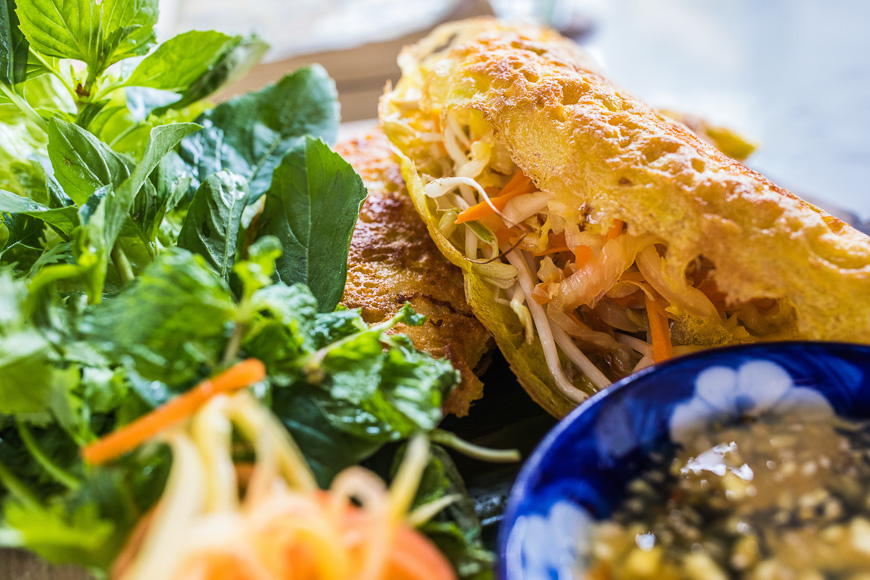
This ‘Vietnamese crepe’ is a sure-fire favourite on any table. Turmeric-spiced batter is spread in a small pan, topped with bean sprouts, pork, shrimp, and sometimes mushrooms. The crepe is folded in half, creating the sizzling noise that gives the dish the name ‘Xèo’. Break off a piece with your chopsticks and wrap in lettuce and herbs for a crunchy, refreshing bite.
Cuốn diếp
Mustard leaves are the vessel of choice in this light and flavourful roll. Vermicelli noodles, shrimp and pork are carefully assembled inside the leaf, which is rolled and tied tight with a blanched green onion stalk. Cuốn diếp is served with a thick peanut and ginger dipping sauce.
Gỏi cuốn
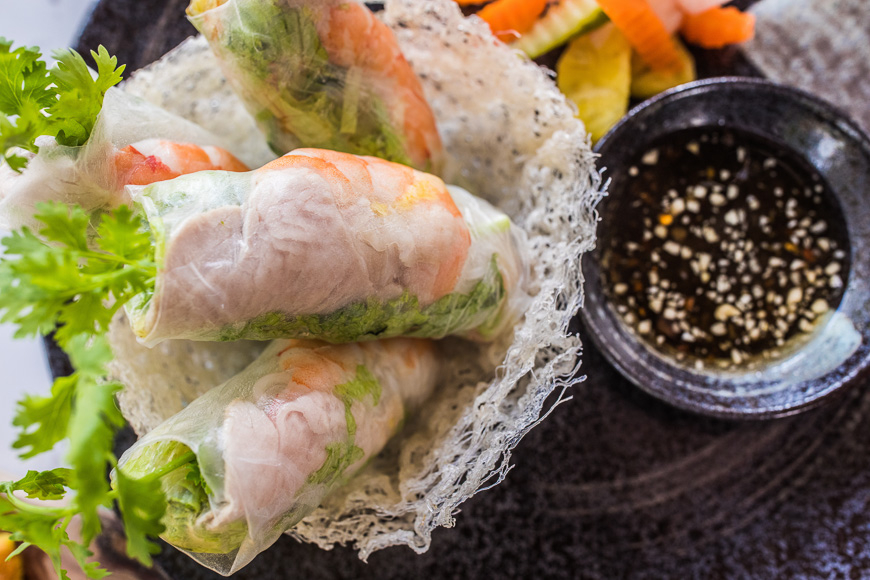
Gỏi cuốn is what most people think of when they imagine Vietnamese spring rolls. The perfect dish for health-conscious eaters, these refreshing rolls are typically made with a piece of pork, a single shrimp, and bun noodles, although it’s easy to find delicious vegetarian versions made with tofu and mushrooms as well.
Bò lá lốt
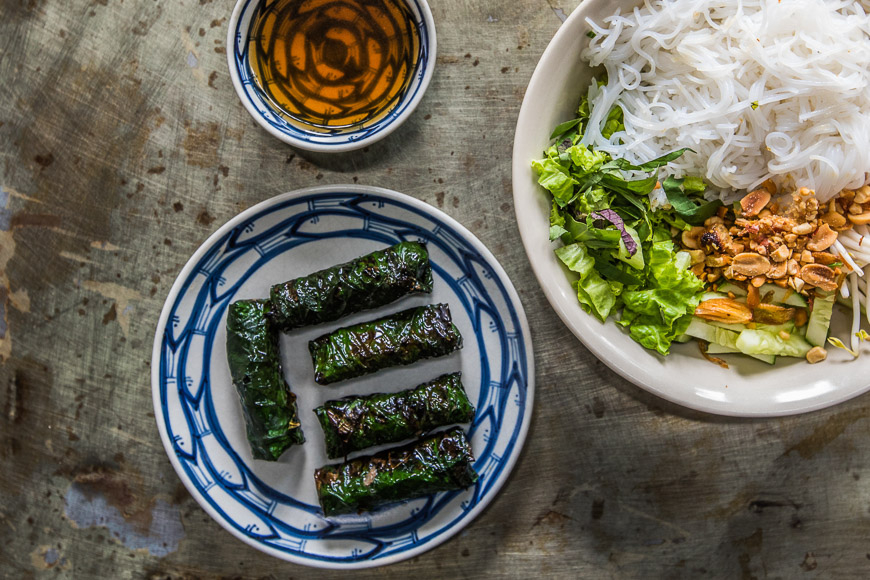
Wild betel leaves are the secret ingredient in bò lá lốt that makes these rolls unique in the Vietnamese kitchen. Seasoned minced beef is rolled in betel leaves and grilled over charcoal for a smoky, meaty bite that’s especially popular in southern Vietnam. Bò lá lốt can be served over fresh noodles, or wrapped in greens and dipped in light fish sauce.
Nem cua bể
Originating in Hai Phong City, this dish is now enjoyed countrywide. Rice paper is stuffed with crab meat, shrimp, pork, wood ear mushroom, vermicelli noodles and bean sprouts, folded into a square shape and deep-fried for a satisfyingly crispy bite. Eat with mint and perilla leaves to counteract the richness of each bite.
Bánh cuốn
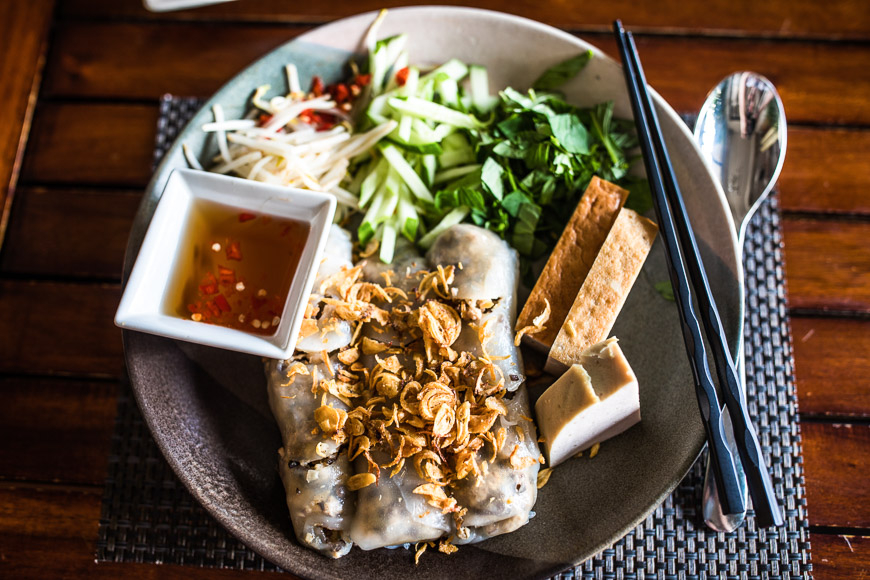
A staple of the North, bánh cuốn is a popular breakfast or lunch in many parts of Vietnam. Freshly steamed rice-flour sheets are gently rolled with minced pork and wood ear mushroom, and topped with fried shallots. A drizzle of sweet and sour fish sauce and thick slices of Vietnamese sausage round out the meal.




